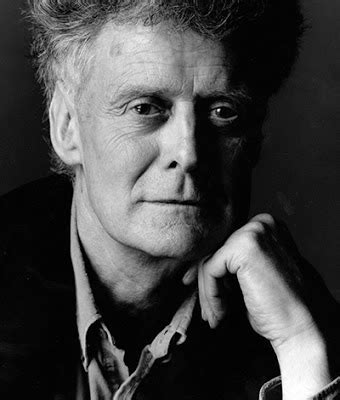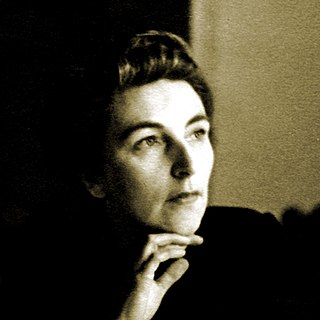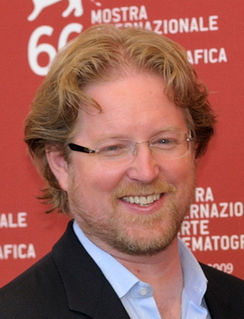A Quote by Orhan Pamuk
The entire world was like a palace with countless rooms whose doors opened into one another. We were able to pass from one room to the next only by exercising our memories and imaginations, but most of us, in our laziness, rarely exercised these capacities, and forever remained in the same room.
Related Quotes
The earth's biosphere could be thought of as a sort of palace. The continents are rooms in the palace; islands are smaller rooms. Each room has its own decor and unique inhabitants; many of the rooms have been sealed off for millions of years. The doors in the palace have been flung open, and the walls are coming down.
In a world of fixed future, life is an infinite corridor of rooms, one room lit at each moment, the next room dark but prepared. We walk from room to room, look into the room that is lit, the present moment, then walk on. We do not know the rooms ahead, but we know we cannot change them. We are spectators of our lives.
But I have sometimes thought that a woman's nature is like a great house full of rooms: there is the hall, through which everyone passes in going in and out; the drawing-room, where one receives formal visits; the sitting-room, where the members of the family come and go as they list; but beyond that, far beyond, are other rooms, the handles of whose doors perhaps are never turned; no one knows the way to them, no one knows whither they lead; and in the innermost room, the holy of holies, the soul sits alone and waits for a footstep that never comes.
In the home we make certain distinctions about functions of rooms and corridors; we do not deliver the groceries straight into the baby's crib. In hospitals we do not take the food trolleys right through the operating chamber, and we rarely have the recreation room next to the convalescent room. We sort out the functions. We have to sort out the functions of the city and the streams of traffic and re-create arterial systems that allow us to breathe ... the shape, pattern and sense of community which you expect if it were a home.
All of us , I believe , carry about in our heads places and landscapes we shall never forget because we have experienced such intensity of life there :places where, like the child that 'feels its life in every limb' in Wordsworth's poem'We are seven' ,our eyes have opened wider, and all our senses have somehow heightened.By way of returning the compliment , we accord these places that have given us such joy a special place in our memories and imaginations. They live on in us, wherever we may be, however far from them.
We are rarely able to interact only with folks like ourselves, who think as we do. No matter how much some of us deny this reality and long for the safety and familiarity of sameness, inclusive ways of knowing and living offer us the only true way to emancipate ourselves from the divisions that limit our minds and imaginations.
Even yet Christ Jesus has to lie out in waste places very often, because there is no room for him in the inn--no room for him in our hearts, because of our worldliness. There is no room for him even in our politics and religion. There is no room in the inn, and we put him in the manger, and he lies outside our faith, coldly and dimly conceived by us.
We are born into a vast room whose walls consist of a thousand doors of possibility. Each door is flung open to the world outside, and the room is filled with light and noise. We close some of the doors deliberately, sometimes with fear, sometimes with calm certainty. Others seem to close by themselves, some so quietly that we do not even notice.
We all fall into our habits, our routines, our ruts. They're used quite often, consciously or unconsciously, to avoid living, to avoid doing the messy part of having relationships with other people, of dealing with a person next to us. That's why we can all be in a room on our cell phones and not have to deal with one another.
I realized the shells were talking in a voice I recognized. I should have; it was my own. Had I always known that? I suppose I had. On some level, unless we're mad, I think most of us know the various voices of our own imaginations. And of our memories, of course. They have voices, too. Ask anyone who has ever lost a limb or a child or a long-cherished dream. Ask anyone who blames himself for a bad decision, usually made in a raw instant (an instant that is most commonly red). Our memories have voices, too. Often sad ones that clamor like raised arms in the dark.







































